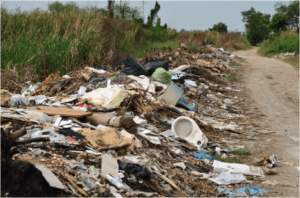
Integrity — Is Life Testing Ours?
The mass migration of over four million Syrian refugees into the European Union poses a second opportunity for that collective of countries (as well as

The mass migration of over four million Syrian refugees into the European Union poses a second opportunity for that collective of countries (as well as

In my blog last week, EU Collaboration: No Matter What, I posed this question, “Where does global society need to collaborate and what new economic

The world watches and waits with bated breath to see how the European Union (EU) will respond to Greece’s “No” referendum vote. Clearly, as North

Ecosystems are not a new phenomenon. The term has existed in relation to the natural environment since 1934 when coined by British ecologist Arthur Tansley

If running a small, medium, large or global enterprise truly requires emotional intelligence as well as industry knowledge and technical expertise, then why do so

Societies with greater equality between men and women are healthier, safer and more prosperous. The Elders Just the other day, I overheard a young woman

In the late 70s, I learned a painful, but effective, lesson in leadership. At that time, I was playing softball in the Pan Am Games

For the past 30 years, I collaborated with small, medium and large organizations in redesigning their structures, systems and processes to fit their strategies and enable employees to serve their customers. In the 70s, we referred to this subsequent flattening of the organizational hierarchy as democratizing the workplace, which suited the social-spiritual ethos of the day. In the 80s and 90s, similar efforts were renamed as building high performing teams and workplaces. Almost two decades into the millennium, and organization designers now refer to these streamlined, democratic workplaces as adaptive enterprises. Regardless of what lessons we learned and labels we invented over the past 50 years, the purpose of an organization has never changed — to provide the necessary resources and training to front line staff so they confidently, considerately and joyfully serve clients.

Each day of my sunny vacation here in Sisal (pronounced Seesal), Mexico, I walk along the six kilometer coastline and marvel at what the sea

I offer those around me patience, encouragement, support, a cheerful word, the gift of a smile – and most of all appreciation. Louise Hay

Whether personally or in business, January is a month for reflecting on the past and renewing commitments that move us forward on our chosen life

In the words of Malcolm Gladwell, “cultural legacies cast a long historical shadow.” They persist, generation after generation, virtually intact, even as the economic and social
© Copyright 2022 – Helen Maupin/Right to Joy – All rights reserved